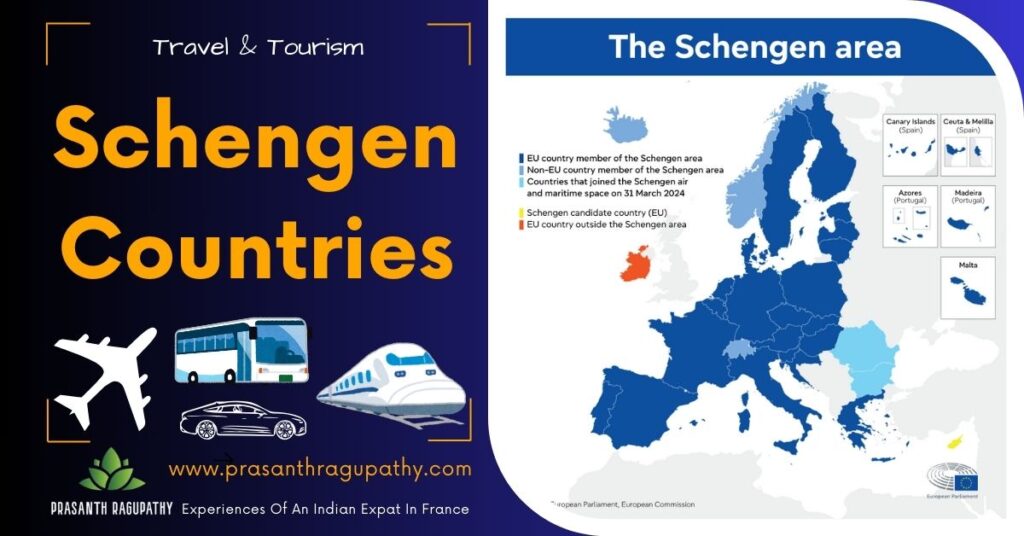Published on: September 09, 2024 | By: @rprasanth_kumar
Community Question
Hello, I have a French resident permit. So, Is it mandatory to carry the original passport during my trips in Europe?. I am driving or taking a train from France to Netherlands, Can I travel with just my resident permit and a photocopy of the passport?.
Summary
- EU/EEA citizens: Can travel with just a national ID card within the Schengen Area and most non-Schengen EU countries (like Romania and Croatia). However, always check for exceptions.
- Non-EU/EEA citizens: Must carry a passport when traveling within Europe, even within the Schengen Area.
- When you have a French resident permit card, carrying the original passport is not mandatory when you are inside France. A photocopy or an image on your smartphone can be shown.
- Airlines and accommodations will typically ask for a passport or national ID for check-in and boarding.
- Always have identification on hand as police or other authorities can ask for it, especially during temporary border controls or local inspections.
Support This Blog!
If you’ve found my articles helpful, interesting or saving your time and you want to say thanks, a cup of coffee is very much appreciated!. It helps in running this website free for the readers.
Traveling within Europe without a passport depends on where you’re traveling and your citizenship status.
EU/EEA/Swiss citizens
- Within the Schengen Area: As a citizen of an EU/EEA country or Switzerland, you can travel freely across Schengen countries without having to go through border controls. You don’t need to carry your passport within these countries but must have your national ID card.
- Outside the Schengen Area but within the EU/EEA: If you travel to non-Schengen EU countries (like Ireland), a national ID card is usually sufficient, but some countries may require your passport.
- Non-Schengen & non-EU countries: For non-EU countries like the UK, your passport is mandatory.
Non-EU/EEA/Swiss Citizens
- Travel within the Schengen Area: As a non-EU/EEA/Swiss citizen, you must carry a passport.
- Police and other authorities may ask for identification, and your passport serves as that identification. It’s especially important if you’re traveling by air or staying in hotels, as they may require it for check-in.
- Travel to Non-Schengen Countries: your passport is mandatory.
- Visa requirements may also apply depending on your nationality.
Air Travel Within Europe
- Airlines typically require a valid travel document, whether a passport (or national ID card for EU citizens).
- This applies even for domestic flights within the Schengen Area.
Travel by Train, Bus, or Car
- When traveling by land (train, bus, or car) within the Schengen Area, police or immigration officers can conduct spot checks and may ask for identification at any point.
- So it’s important to carry your passport (or national ID card for EU citizens) even if you are not going through official border control points.
Temporary Border Controls
- Some Schengen countries temporarily reintroduce border controls for various reasons, such as heightened security measures or large public events.
- In these cases, it’s important to carry your passport (or national ID card for EU citizens) when crossing borders, even within the Schengen Area.
Hotel Check-ins and Local Regulations
- Even if no border controls exist between countries, hotels or accommodations often require a passport (or national ID card for EU citizens) for check-in.
- Some countries may also require you to carry identification on you at all times, which is another reason to have a passport or ID when traveling.
Driving Across Borders
- If you are driving between European countries, you must carry a valid driver’s license and vehicle registration.
- If you are a non-EU citizen, your passport will be required when you are stopped by the police.
Brexit Impact
- The United Kingdom is no longer part of the EU or the Schengen Area.
- Therefore, if you are traveling between the UK and any EU country, you will need a passport regardless of whether you are an EU citizen or a non-EU citizen.
Control Inside France
According to article Article L813-1,
- If, on the occasion of a check referred to in article L. 812-2, it appears that a foreigner is not able to justify his right to move or stay in France, he may be held for the purpose of verifying his right to move or reside in French territory.
- In this context, the foreigner may be taken to a police or gendarmerie premises and detained there by an officer of the judicial police of the national police or the national gendarmerie.
Sources & References
- What are the online attestations of French Resident Permits?
- Travel with a French Resident Permit which is expiring soon or has expired
- Des contrôles, des vérifications et des relevés d’identité (Articles 78-1 à 78-7)
- Contrôles d’identité: que dit le droit et comment mettre fin aux contrôles discriminatoires ?
Support This Blog!
If you’ve found my articles helpful, interesting or saving your time and you want to say thanks, a cup of coffee is very much appreciated!. It helps in running this website free for the readers.


